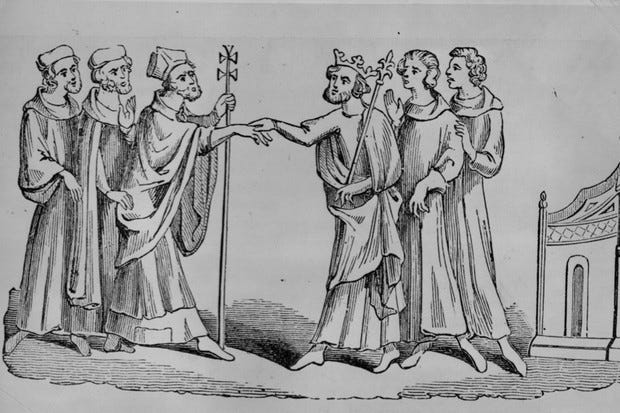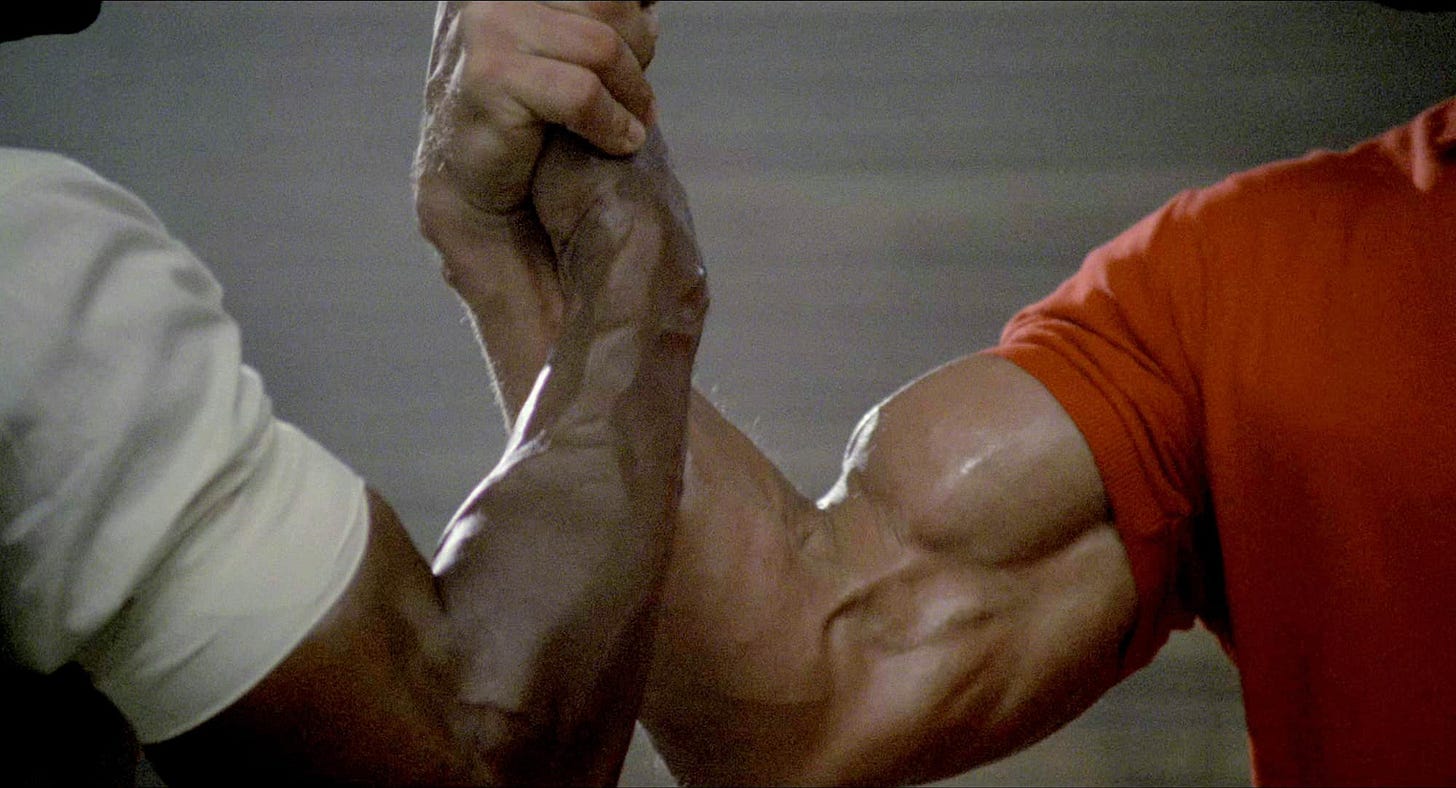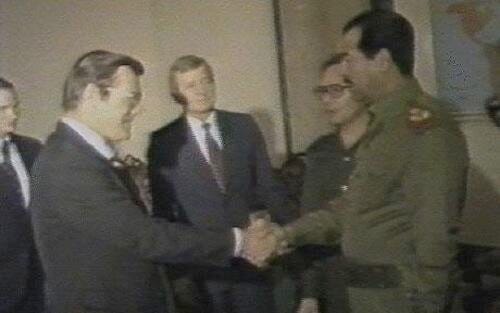It started out as a gesture of peace.

Conflicting theories abound, but the general belief among historians is that the custom of a handshake originated as a way to demonstrate that one’s hand held no weapon — a way of stating that you posed no threat to the other party. In a simpler, theoretically more barbarous time, this would be a bold statement of trust and of opening oneself to personal risk. In this possibly-mythical past, to be the one offering an open palm where a dagger would be expected marked you as something of a saint.
I will not harm you.
Over time, the practice evolved into an all-purpose greeting, removed from the life-or-death connotations of this origin. Cultural traditions vary, but in the West a firm, strong handshake is preferred, an iron grip conveying the applicant’s strength and seriousness. A brief squeeze that rearranges the recipient’s metacarpals is meant to suggest power and vitality. The tone has been set for countless job interviews, business meetings and political negotiations by the firmness of someone’s grasp.
I am here to do business, and I am not to be taken lightly.

Linguistically, the idea of a handshake has come to serve as a symbol of tentative agreement. A ‘handshake’ deal is understood to be a ceremonial precursor to a binding contract, a temporary proxy whose terms are only as good as the faith of both parties involved. When a handshake deal falls through, there’s nothing to offer but a shrug and the sense that tough nuts, pal, you should’ve gotten it in writing.
I can’t be held to account for this yet.

There’s a lot that can be conveyed in a handshake outside of the prevailing boardroom practices. Unique and complicated gestures that confirm a shared background or experience, a signifier of deeper mutual understanding. In traditionally marginalized groups, this can be a way of expressing non-verbal solidarity, of maintaining a second identity safely out of regular view when to wear it outwardly might endanger you.
I don’t know you, but I know what you do.

Taken in a different, more ominous light, a ‘secret’ handshake can be part of the unseen coding that keeps power in place and out of the hands of others — a reaffirmation of the unseen structures that govern so much of our world, things that are understood to be true if never explicitly admitted to be.
We know something they don’t.
I can’t say that I know what’s going to happen over the weeks or months to come any more than you or the news or the politicians or anyone else does. I don’t know how bad things are going to get. I have a healthy degree of concern, something that I have in so many aspects of my life now that I’ve reached a cautious early middle age. (If there’s anything I miss about my twenties, it’s the long-lost belief in my own invincibility.) I’m not going to get on a cruise ship any time soon, but that’s a statement that I could’ve made six months or five years ago as well. For the most part, I plan to continue to live my life as normally as the situation will allow.
Surely we do have reason to be concerned about how the spread of a poorly-understood new virus might impact vulnerable populations. Elderly people, immunocompromised people, and people with underlying medical conditions should take serious efforts to protect themselves from this, and everyone else should do the same in order to protect those people. The advice is clear, if not wholly reassuring: we should lessen unnecessary social contacts for a time. We should stay at home if we develop symptoms of a respiratory illness. We should telecommute and use hand sanitizer and wash our hands for at least 20 seconds at a time.
Stop shaking hands. It’s too big a risk.
I was educated, as many people of moderately fortunate circumstances were, to believe that we lived in a fundamentally fair and just society — one that rewarded people who did the right things and only punished those who didn’t. At the broad stroke, many of us would come to see that belief as an optimistic oversimplification as soon as we came of age, a fairy-tale belief to be filed along with grade-school portrayals of the first Thanksgiving. Even still, many of us would hold onto the most charitable reading of things. Society’s not always exactly fair, we’d say, but it’s moving in the right direction. We stick with the story that’s easiest to tell ourselves, the one in which our world is running on some buggy software that just needs a few patches to run as virtuously as its designers intended.
We take care of each other.
This reasonable and prudent advice we’re getting right now is built on impossibilities. Work from home, we’re told, as though the entire workforce has an information-class job capable of being done with a VPN and robust wireless connection. Stay home if you’re not feeling well, they say, as though 1 in 4 working Americans aren’t without access to paid sick leave. Seek treatment if you develop symptoms, we’re advised, as though the mere act of walking through the doors of an emergency room wouldn’t effectively bankrupt a measurable subset of the population. Of course, much like my aversion to cruise ships, all of this was true six months ago and five years ago and will remain true even if by some deus ex machina our specific current situation turns out to be less dire than feared.
Long before a novel virus presented within our borders, we’d revealed our social contract to be little more than a handshake agreement. The idealized image of our society was built on an outward claim that we meant others no harm. We sought to project confidence, strength, and reliability. A sense of common understanding and shared values was implied, even as invisible structures were maintained to prevent the fruits of our society from being truly shared. In good times, it can be easy to still believe our values are rock-solid, matters of fundamental truth and not simply custom. In bad times, we find out what the rules actually are.
Our society is only as strong as our willingness to do the things we profess to believe in: to take care of one another, to extend equal and fair treatment to all, to believe in freedom not just in the theoretical sense but in the practical sense of freedom from fear and despair and penury and preventable death.
I guess we should’ve gotten more of this in writing.
— Scott Hines (@actioncookbook)


